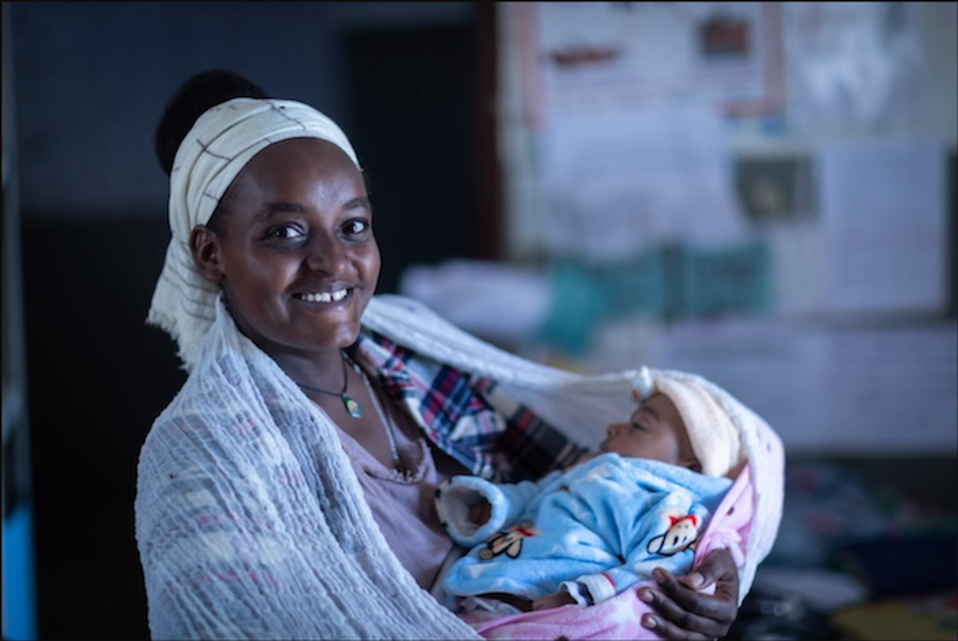- Home
- Billionaires
- Investing Newsletters
- 193CC 1000
- Article Layout 2
- Article Layout 3
- Article Layout 4
- Article Layout 5
- Article Layout 6
- Article Layout 7
- Article Layout 8
- Article Layout 9
- Article Layout 10
- Article Layout 11
- Article Layout 12
- Article Layout 13
- Article Layout 14
- Article Sidebar
- Post Format
- pages
- Archive Layouts
- Post Gallery
- Post Video Background
- Post Review
- Sponsored Post
- Leadership
- Business
- Money
- Small Business
- Innovation
- Shop
Recent Posts
UNICEF and Church Collaboration Saves Lives in Africa

UNICEF and The Church of Jesus Christ of Latter-day Saints are partnering to improve maternal and newborn health in Ethiopia, Kenya, and Tanzania. The initiative focuses on the critical first 28 days of a child’s life, aiming to reduce mortality rates by enhancing the skills of healthcare workers.
In Eastern and Southern Africa, newborn mortality rates are alarmingly high due to inadequate healthcare. To address this, UNICEF and the Church have launched a sustainable training program. The initiative, which began in 2022, establishes learning hubs, simulation centers, and mentorship programs. These resources equip healthcare providers with the necessary skills to enhance care standards and reduce mortality rates.
The program’s unique approach includes hands-on training in hospital settings, moving away from traditional classroom instruction. This method ensures that healthcare providers gain not only competency but also proficiency in lifesaving skills. By providing personalized support during labor, including dynamic birthing positions and non-pharmacological pain relief measures, the program improves outcomes for both mothers and newborns.
The initiative also emphasizes the importance of mental health, recognizing that positive birth experiences can positively impact mothers’ mental health and, consequently, early childhood development. The program’s success lies in its local ownership and scalability. By involving stakeholders at national and sub-national levels, the initiative ensures sustainability and expansion.
Early results in Ethiopia show positive outcomes, with thousands of mothers and newborns benefiting from the program’s interventions. The project has received support from governments, Laerdal Global Health, and other partners, ensuring its sustainability. In 2024, the program will expand to more health centers in Ethiopia and Kenya, as well as Angola, Lesotho, and Mozambique.
Through this partnership, UNICEF and The Church of Jesus Christ of Latter-day Saints are not only saving lives but also building long-lasting healthcare infrastructure and advocating for similar improvements in other countries. Their shared belief is that every child deserves a healthy start in life.
Recent Posts
Categories
- 193cc Digital Assets2
- 5G1
- Aerospace & Defense46
- AI37
- Arts3
- Banking & Insurance11
- Big Data3
- Billionaires449
- Boats & Planes1
- Business328
- Careers13
- Cars & Bikes76
- CEO Network1
- CFO Network17
- CHRO Network1
- CIO Network1
- Cloud10
- CMO Network18
- Commercial Real Estate7
- Consultant1
- Consumer Tech180
- CxO1
- Cybersecurity68
- Dining1
- Diversity, Equity & Inclusion4
- Education7
- Energy8
- Enterprise Tech29
- Events11
- Fintech1
- Food & Drink2
- Franchises1
- Freelance1
- Future Of Work2
- Games141
- GIG1
- Healthcare78
- Hollywood & Entertainment186
- Houses1
- Innovation42
- Investing2
- Investing Newsletters4
- Leadership65
- Lifestyle11
- Manufacturing1
- Markets20
- Media193
- Mobile phone1
- Money13
- Personal Finance2
- Policy567
- Real Estate1
- Research6
- Retail1
- Retirement1
- Small Business1
- SportsMoney33
- Style & Beauty1
- Success Income1
- Taxes2
- Travel10
- Uncategorized8
- Vices1
- Watches & Jewelry2
- world's billionaires418
Related Articles
Tim Walz Tops JD Vance in Favorability Ahead of Debate
As the political landscape heats up ahead of the upcoming vice presidential...
By 193cc Agency CouncilSeptember 26, 2024Harris vs. Trump: A Close Contest as Polls Indicate Narrow Leads
The upcoming election is shaping up to be a fierce battle between...
By 193cc Agency CouncilSeptember 26, 2024Musk Threatens Apple Device Ban Over OpenAI Integration
Elon Musk, known for his ventures such as Tesla, SpaceX, and OpenAI,...
By 193cc Agency CouncilJune 11, 2024Trump Hails NYPD’s Clearing of Columbia Encampment
Former President Donald Trump offered high praise for the New York Police...
By 193cc Agency CouncilMay 2, 2024















Leave a comment